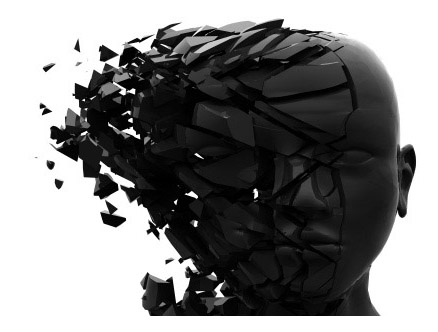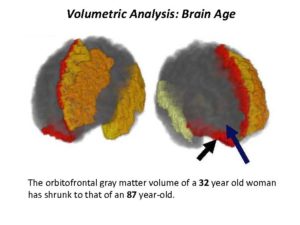
Whether from construction or motor vehicle accidents, slips and falls, blasts, or even lead paint or other exposures, many brain injuries are minimized or even unrecognized. The brain weighs just a few pounds. Its consistency is pudding sitting inside a hard jagged skull. It doesn’t take much trauma to hurt it seriously. Whiplash without head trauma from even a low-impact motor vehicle collision can cause extensive brain injury. Indeed, we have learned that just shaking a baby can seriously damage its brain.
If following, head trauma from a motor vehicle collision or fall, the victim is talking normally and his X-rays or CT Scans or MRI’s are normal, he or she is frequently pronounced “fine.” However, our work shows that these trauma victims are often not fine. Their sleep, memory, concentration, ability to learn, ability to do their jobs or handle relationships are frequently much worse. For many accident victims their mind’s worsening continues long past the time their doctors told them it should. With this worsening comes fear about being able to continue working and keeping relationships that are faltering. The worsening can be accompanied by the victim’s concealment or denial of the mind’s failing. Brain-injured victims often suffer with feelings of shame that they are no longer the same people that they, their friends, and loved ones have always counted on them to be. Complicating these relationships is the fact that brain injury victims often look and sound the same as they did before the injury, even though their injury has erased parts of who they used to be.
A brain injury (including concussion) may not change how a person walks or talks, but it can severely deteriorate how that person thinks, feels, remembers, and responds. Having to be told the same things many times, getting lost, forgetting that food is on the stove or in the oven, responding with uncontrollable anger from the customary and typical frustrations or disappointments of daily life, and exhaustion from just trying to think or read, are just some of the many signs of brain injury.
Because the brain controls all of our functions, its damage can impair accident victims in so many different ways. Different types of damage can require different types of medical specialists: thinking problems require a neuropsychologist; emotional problems a neuro-psychiatrist; visual problems a neuro-ophthalmologist; and balance problems a neuro-otologist.
A traumatic brain injury case is essentially about who a person was, who they hoped to be, who they are now as a result of the injury, and the way the injury has changed their future. Unfortunately, brain injury also inflicts losses on the victim’s loved ones in ways that often expand rather than diminish as the victim gets older. TBI Information
Brain volume analysis, a tool of imaging neuroscience, shows that concussion trauma and ensuing atrophy have rendered the injured portion of this 32 year old woman’s brain to the equivalent of an 87 year old.
